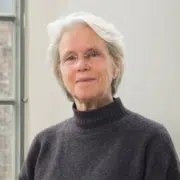Veel verontwaardigde reacties op het nieuws van gisteren dat in Groningen tóch meer gas wordt opgepompt dan dat eigenlijk de bedoeling was. De gaskraan moet daar snel dicht, maar met het eind in zicht gaat de kraan toch nog verder open. Volgens energiedeskundige Lucia van Geuns heeft het allemaal te maken met een stikstoffabriek in Zuidbroek die nog niet klaar is.
Omdat het de bedoeling is dat de gaskraan in Groningen dichtgaat, moet Nederland meer gas importeren. Dat gas kan vaak niet meteen gebruikt worden in ons netwerk. Het geïmporteerde gas, uit bijvoorbeeld Rusland, is zogenoemd hoogcalorisch gas. Daar zit weinig stikstof in.
In Nederland en delen van Duitsland gebruiken ze laagcalorisch gas. Dat komt uit de Groningse bodem. Een eigenschap daarvan is, is dat er veel stikstof inzit.
Het gasnetwerk in Nederland is ingericht op het Groningse laagcalorische gas. Dat wil dus zeggen dat het geïmporteerde gas niet meteen gebruikt kan worden. Dus aan dat hoogcalorisch gas moet stikstof toegevoegd worden. Op dit moment wordt in Zuidbroek, in Groningen, een speciale fabriek gebouwd. Maar het grote probleem is: die is nog niet klaar.
Verplichtingen
Waarom moet er dan extra gas gewonnen worden? “Nederland heeft al lange tijd exportcontracten met Duitsland, Frankrijk en België. Die duren nog door tot in ieder geval 2030. Dat is een verplichting en daar moeten we aan voldoen”, zegt Van Geuns, energiedeskundige bij het The Hague Center for Strategic Studies.
Daaraan zouden we kunnen voldoen door het geïmporteerde gas weer te kunnen verkopen. Maar dat kan dus nog niet, omdat de stikstoffabriek nog niet af is. Vandaar dat we zelf laagcalorisch gas moeten gaan winnen.
Is het veel?
In Groningen zijn ze niet blij met de extra gaswinning. Daar wordt gevreesd voor nóg meer problemen.
Van Geuns zet de hoeveelheden gas in perspectief. “Dit gasjaar loopt van 1 oktober 2021 tot 1 oktober 2022. Er zou ongeveer 3,9 miljard kubieke meter worden opgepompt, dat gaat nu naar mogelijk 7,6 miljard. Maar als je je bedenkt dat in 2012 ongeveer 50 miljard opgepompt is, is dit niet zo heel veel. Maar al met al is dit wel een enorme teleurstelling voor de mensen in Oost-Groningen.”
Het kabinet laat TNO nog uitrekenen of de gaswinning gevolgen kan hebben voor de aardbevingen in het winningsgebied.
Blok: ‘Hele vervelende boodschap’
“Ik begrijp heel goed dat het een teleurstelling is voor de mensen in het bevingsgebied.” Dat zegt vertrekkend minister Blok van Economische Zaken over zijn aankondiging dat er toch meer Gronings gas nodig is.
De bouw van de stikstoffabriek heeft door de coronapandemie vertraging opgelopen. De fabriek moet buitenlands gas gaan omzetten naar de kwaliteit van het laagcalorische Groningengas. “Deze vertraging heb ik vorig jaar al bekend moeten maken”, zegt Blok, “en dat het daardoor mogelijk was dat er meer gas moest worden gewonnen. De berekeningen wijzen daar nu op.”
Bron: NPO Radio 1


